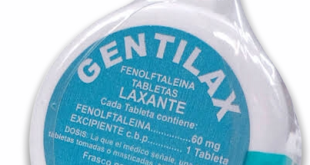Cinnamon is one of the feel-good foods. Even scent reminds me of fall, my favorite time of year, and the first thing that comes to my mind is using it in scrumptious recipes such as apple pie, and celebrating the winter holidays. While it is available throughout the year, the fragrant, sweet and warm taste of cinnamon is a perfect spice to use during the winter months. It has been prized for its medicinal properties for thousands of years. Modern science has now established what people instinctively knew for ages.
Cinnamon plants have oval-lanceolate, rough-textured leaves approximately 7 to 20 cm in length. Cinnamon is a spice that comes from the branches of wild trees that belong to the species “Cinnamomum” – local to the South America, Caribbean and Southeast Asia. Cinnamon has two main types: Ceylon cinnamon (Cinnamomum verum) has been considered as “true cinnamon”; Cassia cinnamon or Chinese cinnamon (Cinnamomum aromaticum) on the other hand,derives it’s main origin from Southern China. It is typically less expensive than Ceylon cinnamon. Owing to the fact that Ceylon cinnamon is quite high-priced, most foods in the USA and Western Europe, including sticky buns, breads and other foodstuffs use the cheaper Cassia cinnamon (dried Cassia bark).
These days cinnamon is considered as the second most popular spice, followed by black pepper, in the USA and Europe. It is used in both sweet and savoury foods. Cinnamon has been known from remote ancient times. It was imported to Egypt as early as 2000 BC, but those who state it had originated from China mostly confuse it with cassia. Cinnamon was so highly prized among ancient countries that it was regarded as a gift that was fit for monarchs and even for a god! While there are so many fans of it’s flavor and aroma, I’m delighted to blowout the news about cinnamon’s health benefits. For example, just a teaspoon of cinnamon holds as much antioxidant strength as a ½ cup of blueberries, and cinnamon’s natural antimicrobial properties have been shown to struggle the stresses of E. coli, as well as Candida yeast.
Cinnamon’s exceptional curative abilities come from three basic kinds of components in the essential oils found in its bark. Cinnamyl acetate; cinnamaldehyde; and cinnamyl alcohol are the functional constituents that are confined in these oils. Plus a wide range of other volatile substances. It can now be considered the essential health benefits of cinnamon. The FDA has not approved Cinnamon to cure any medical condition. This material has been presented for informational reasons. It is not intended to treat, diagnose or cure any disease. It is recommended to refer to a doctor before any Cinnamon is taken.
Benefits, usage and storage
Below are some amazing health benefits of Cinnamon along with the ideas of using and storing it
Cinnamon is full of Antioxidants
Oxidative harm is caused by free radicals. Antioxidants defend the body from such harm. Subsequently, Cinnamon is full of strong antioxidants, for example polyphenols. Comparison of the antioxidant activity of 26 spices was conducted in a study, and cinnamon wound up as the vibrant leader. Indeed, cinnamon is so powerful that it could be used as a natural food preservative.
Effective Against HIV Virus
HIV is a virus that gradually leads to a broken down immune system. If it is not treated, this could ultimately lead to AIDS. A study of Indian medicinal plants revealed that, cinnamon may potentially be effective against HIV. The most effective extracts against HIV-1 and HIV-2 are Cardiospermum helicacabum (shoot + fruit) and Cinnamomum cassia (bark). HIV-1 is the most common strain of the HIV virus in humans.
Anti-Clotting Activities
Cinnamaldehyde has been well studied for its effects on blood platelets. Platelets are components of blood that are meant to stick together under emergency circumstances (e.g. physical injury) as a way to stop bleeding. Under usual conditions, they can make blood flow insufficient if they clump together excessively. Cinnamon’s cinnaldehyde component aids to avoid undesirable clumping of blood platelets.
Anti-Microbial Activity
Essential oils of Cinnamon qualify it as an “anti-microbial” diet as well. It has been learnt that cinnamon has the ability to help put a stop on the development of bacteria in addition to fungi. This includes the commonly problem causing yeast Candida. Tests in a lab showed growth of yeasts that were resilient to the generally used anti-fungal medication fluconazole was often stopped by cinnamon extracts. Recent research validates Cinnamon’s antimicrobial properties being so effective that this spice can be used as a substitute to traditional food preservatives.
Cinnamon’s Scent Boosts Brain Function
Not only does consuming cinnamon improve the body’s capability to utilize blood sugar along with other health benefits. Just smelling the delightful odor of this sweet spice boosts brain activity! So it is very real and true to say that it really can improve one’s cognitive processing.
Blood Sugar Control
Seasoning a high carb food with cinnamon can help lessen its impact on one’s blood sugar levels. Cinnamon reduces the frequency at which the stomach empties after meals. It reduces the rise in blood sugar after having food. Cinnamon may also considerably aid people with type 2 diabetes improve their ability to react to insulin, hence stabilizing their blood sugar levels.
For diabetics, it is important to take Ceylon Cinnamon in moderation as a part of healthy program of diet intake. Appropriate nutrition and reasonable exercise is necessary since it comprises low levels of Coumarin and high doses of it may cause liver damage. In the studies of diabetes, ground cinnamon is generally given at dosages of 1 to 1.5 g per day without reported adverse effects with this dosage.
Lower the negative effects of high fat meals
Penn State researchers discovered that diets high in cinnamon could help in the decrease of body’s negative reactions to eating excessive in fat meals.
Cinnamon May Be Protective Against Cancer
One of the most serious diseases, Cancer, is characterized by unrestrained of cells. This spice has been widely studied for its prospective use in cancer avoidance and management. The evidence is restricted to test tube experiments overall and animal studies. This suggests that cinnamon extracts may protect against cancer.
Cinnamon May cut the risk of Heart Disease
Heart diseases have been linked to the world’s utmost cause of premature death. Cinnamon, however, has found to be reducing this risk. It can improve some key risk elements for heart disease that includes cholesterol, blood pressure and triglycerides.
How to Enjoy Cinnamon
Some Quick Serving Ideas may be: Simmering cinnamon sticks with honey and soymilk for a scrumptiously warming beverage; Adding ground cinnamon when preparing curries; Sprinkle cinnamon into your coffee, or add it to the grounds of coffee just before preparing; Add a dash or two of cinnamon to overnight oats, heated oatmeal or cold whole grain cereal; Sprinkle a little cinnamon onto popped popcorn; Enjoying the preferred kids’ classics, cinnamon toast with a nourishing excitement. Sprinkle flax seed oil onto whole-wheat toast and drizzle with honey and cinnamon.
A Traditional Warming Remedy
Cinnamon has also been valued in energy-based medicinal systems, for example, the Traditional Chinese Medicine, for its warming potentials. In these traditions, cinnamon has been used to relieve the onset of a cold or flu, especially when mixed in a tea with some fresh ginger.
How to Store
Cinnamon should be kept in a firmly sealed glass container in a dry, dark and cool place. Ground cinnamon can be stored nearly for six months. Cinnamon sticks could be said to stay fresh for around one year.
I am hopeful that the above information would have enlightened you about the health benefits and much more about Cinnamon.
 Health & Care Information
Health & Care Information 


